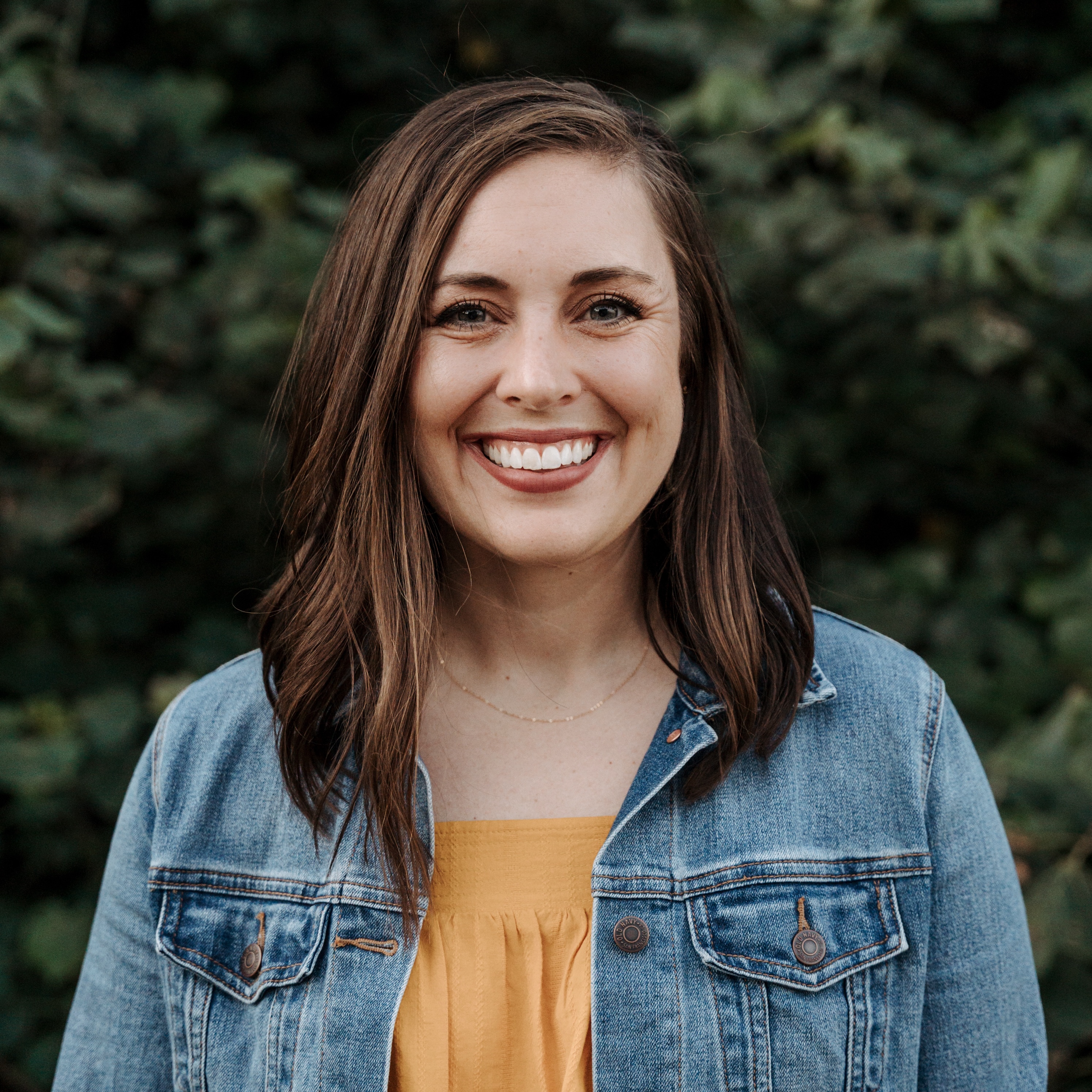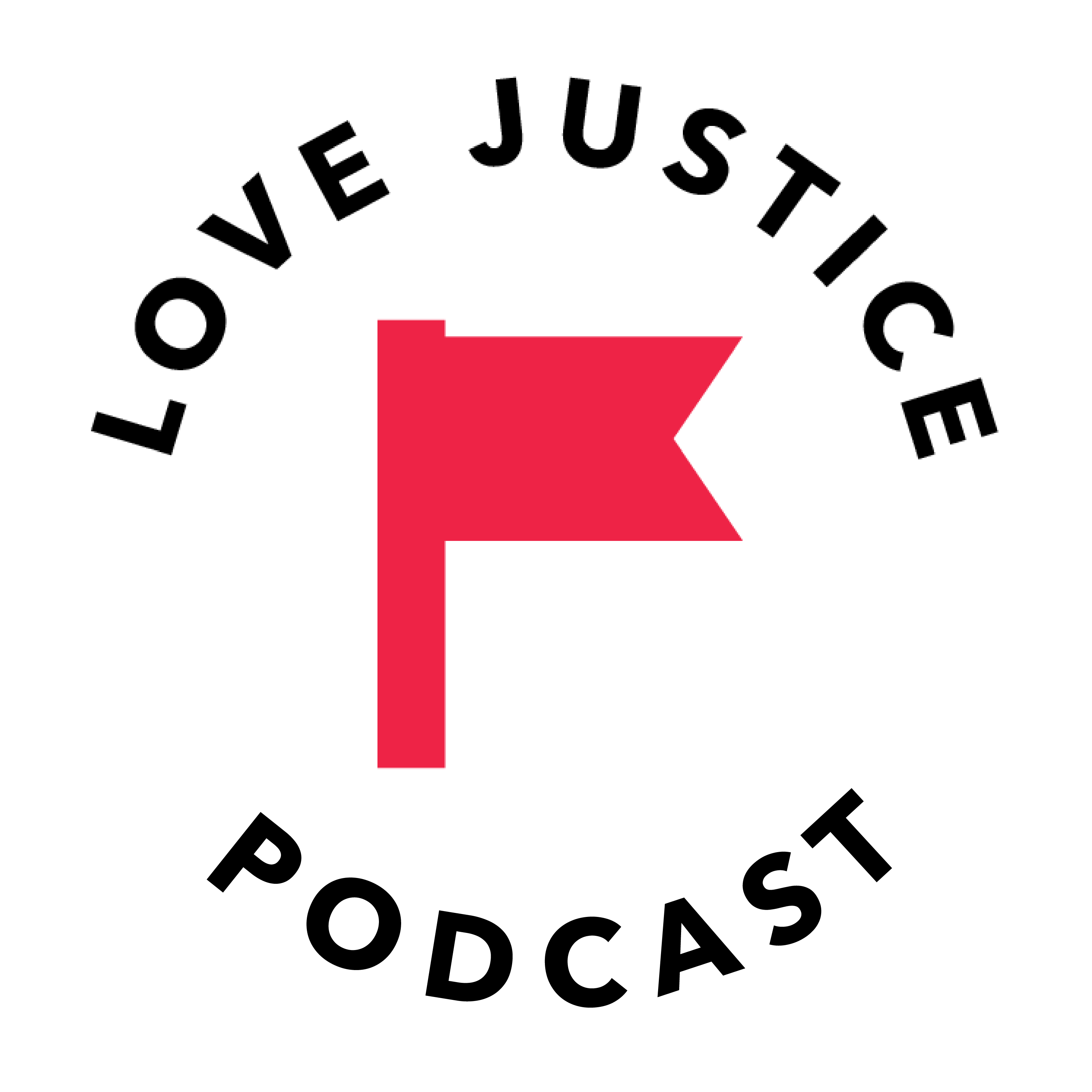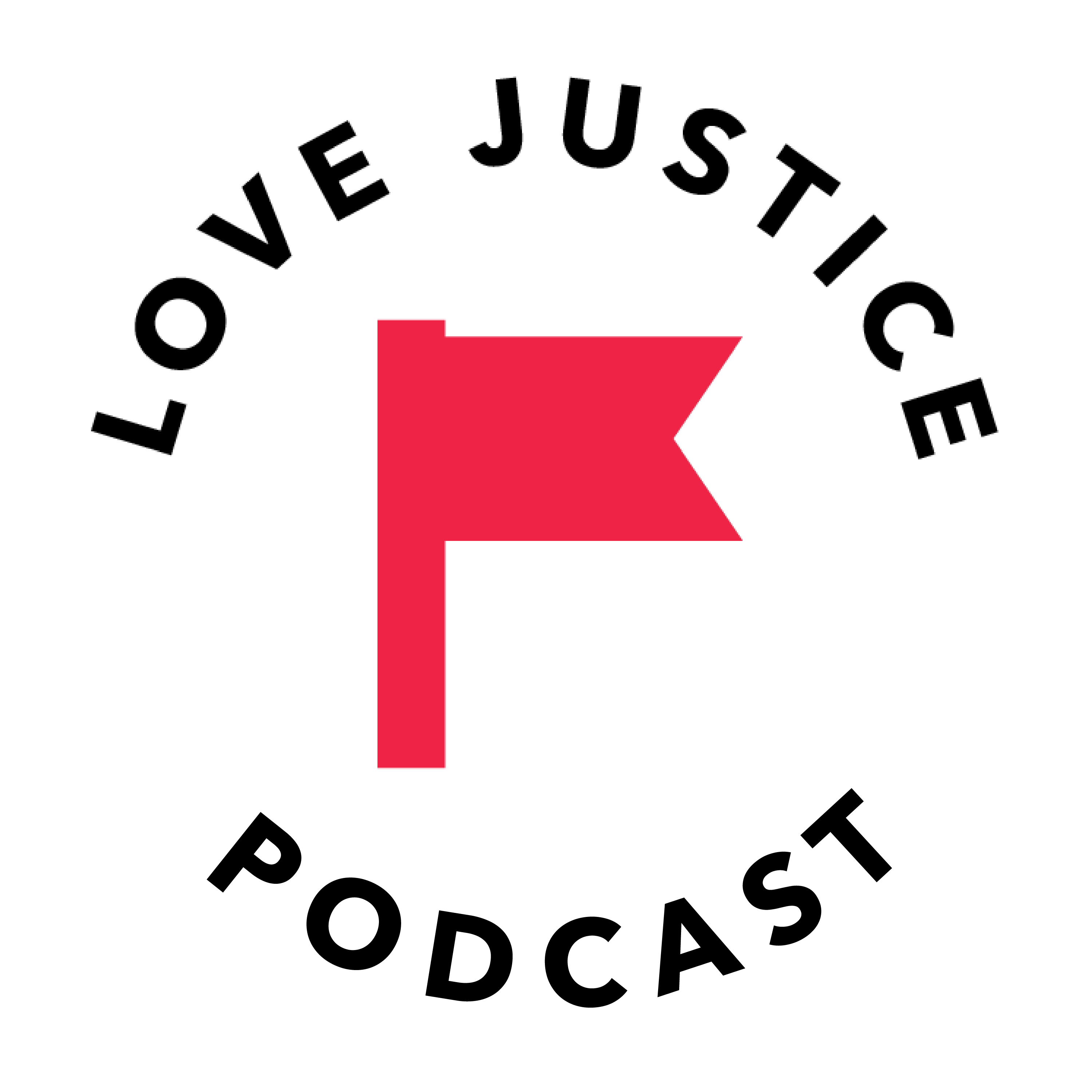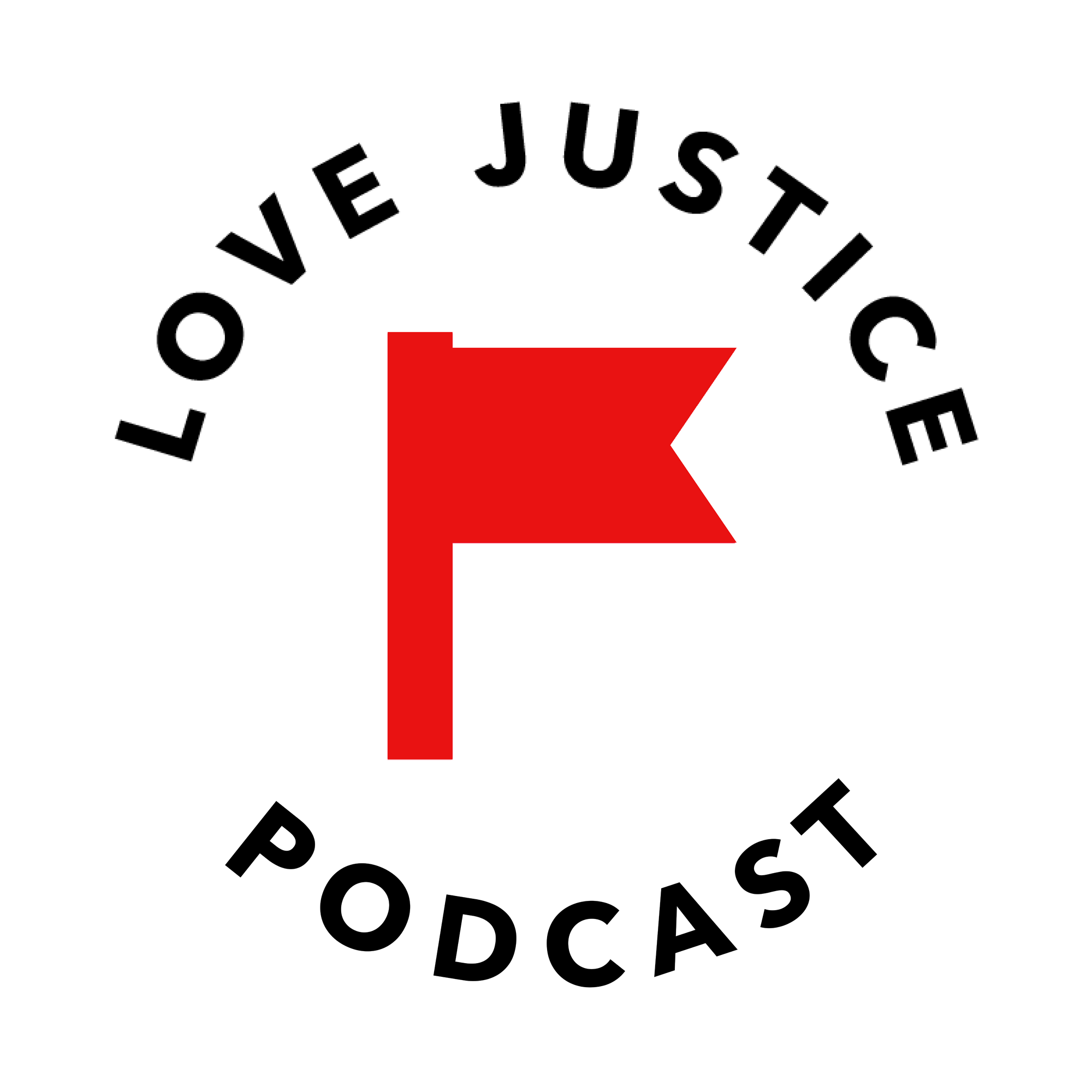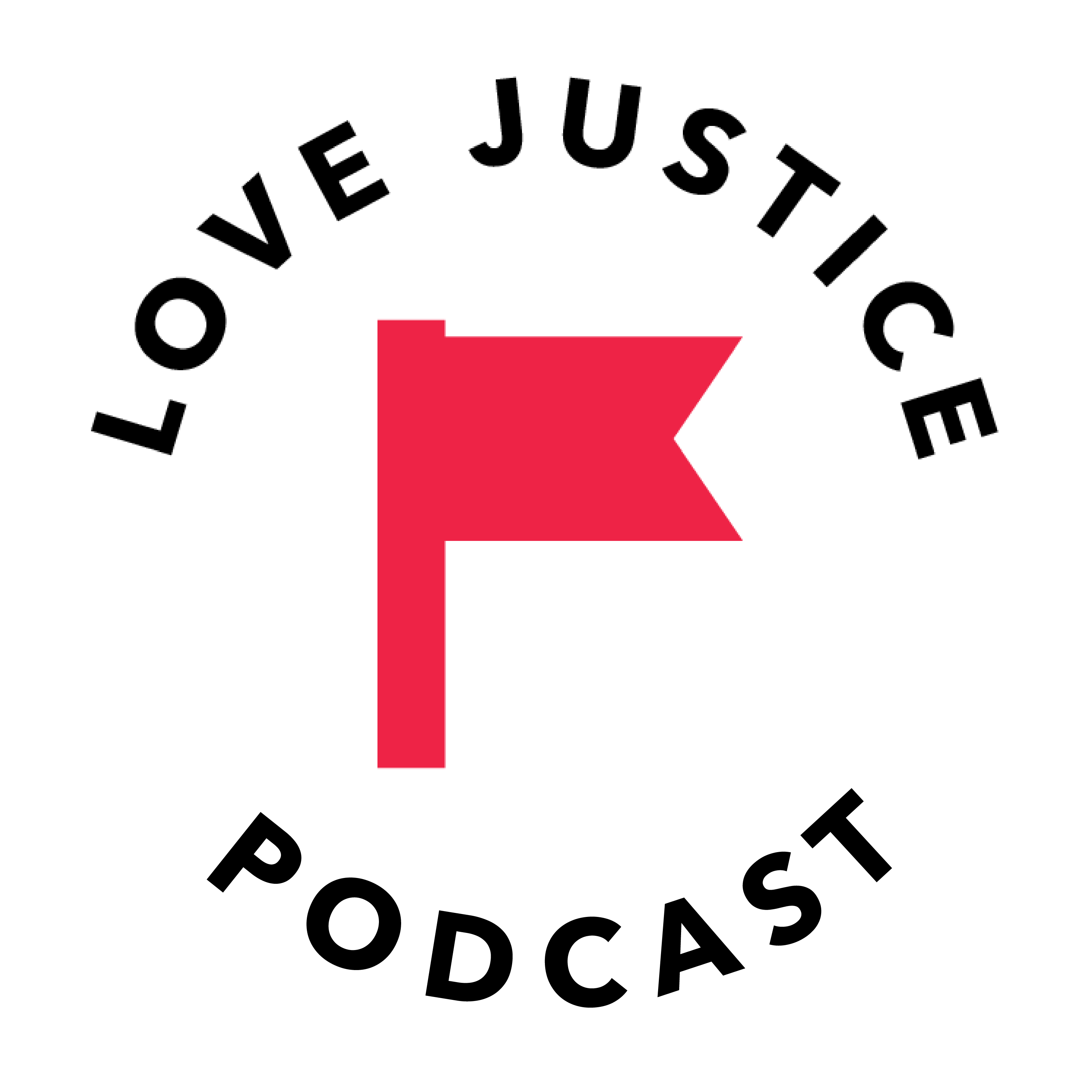Episode Transcript
[00:00:02] Speaker A: Welcome to the Love justice podcast, where we hear from different voices who are joining us in the fight against modern day slavery. Please welcome today's guest, John Molyneux.
[00:00:15] Speaker B: I'm Jason Dukes with co host Hannah Munn. And today we have, as our special guest, the CEO of Love Justice International, John Molyneux. John, welcome to the Love justice podcast.
[00:00:29] Speaker C: Thank you. Glad to be here.
[00:00:31] Speaker B: So, John, CEO of Love Justice International, tell us, who is John Molyneux?
[00:00:37] Speaker C: Yeah, well, thank you, Jason. Glad to be here and have this opportunity. And, yeah, so I am John Molyneux. I grew up in Helena, Montana.
When I was 18, I became a Christian. I gave my life to Christ, and I ended up transferring from another college to Taylor University, where I would graduate. And after graduating from Taylor, I traveled to Nepal, where I've lived for the last 20 years. And I would. During that time, I would go on to found what began as tiny hands international and later became Love Justice International.
And I would describe my story as just encountering God's heart for justice in the least of these in the scriptures, and that leading me to learn about and seek to face up to injustice in the world. And then, as I did, having my heart broken over what I learned about injustice, and then, like a bumbling idiot, stumbling into every pitfall under the sun, making every possible mess of things, and kind of being forced to confront ways that the brokenness of the world and sins in my own heart combined such that it was so hard to do harm and so hard to make an impact and so easy to do harm.
And so, you know, I've lived in Nepal for 20 years, and throughout much of that time, have just been searching for impact opportunities, opportunities to make a life altering difference in someone's life. And those moments and those opportunities are rare and precious. I used to not. I used to think they were more common than I found they are. And love justice has become an organization dedicated to finding those opportunities and finding the interventions that can make that difference and scaling them. And so we have learned. We've learned a lot of things along the way, and it's been just a blessed and exciting journey.
[00:02:38] Speaker D: Yeah, I just. I have to. Whether this makes it on the podcast or not, totally fine. But I just have to take a second, because that's something I love about John so much. And why I feel like we. I've personally been around love justice for so long is how honest and humble John is about, like, yeah, I've made mistakes, and here's how we're learning from that. And. And that has ultimately led to our core value of, or one of our core values of admit your weaknesses. And I think that's so, so rare to find in a leader, let alone a CEO and a founder. And so, yeah, thanks for sharing that job. I will never get tired of you just sharing, sharing that part about who you are.
[00:03:16] Speaker C: Yeah. I mean, it was a important journey that I've been reflecting on lately, and it's, I think, a really important one, so. Yeah.
[00:03:25] Speaker D: Yeah. John, tell us a little bit more about that first trip, Nepal. Why did you guys end up in Nepal? What about that trip led to you staying there for 20 years?
[00:03:35] Speaker C: Yeah. So. Well, there was four other guys that I went with from school, and I was actually, they had all studied together at Jerusalem University College. I was a late fifth wheel addition to the trip. They were the ones that had chosen the pub before I even got involved. And we ended up just.
Just going to Nepal, kind of looking for missions and adventure. None of us really knew what we wanted to do with our life. And we spent a lot of our time working with street children and had our hearts broken by what we learned about the plight of street children. We helped an organization, sort of drop in center for street kids.
And one of the guys who was on that trip, Mike O'Hara, who's now the chairperson of love justice, he met a man on the, during the trip who had a vision to start a children's home. And after we all went home, Mike started talking to members of his church in Lincoln, Nebraska, about funding this home. And he called me and said, you know, I'm going back to Nepal. This home is starting. And I got a one way ticket kind of thinking I'd be home by Christmas, but I was still trying to figure out what I want to do with my life. And I got back to Nepal, and I saw, you know, this contrast between, on the one hand, the street kids that we'd work with, on one hand, and on the other hand, the children in this home, they were just so full of life and seemingly happy. And so I stayed through Christmas, and basically, I've been there ever since.
[00:05:11] Speaker B: It's amazing.
I love every time you tell that story, every time you talk about that first trip, I mean, what did, what did you encounter there that moved you so much, and then what did you decide to do about it?
[00:05:27] Speaker C: Well, I mean, the first thing that I encountered was that contrast between, you know, street children that the ones that we had knew, some had died, many had gone from bad to worse, beaten up or forced to. They're beaten up by the police or scorned by society, they're forced by bosses to take or sell drugs. And then they end up becoming addicted to the streets and have their lives broken on it. And that time, close to 100% of street children and Kevin Du had HIV.
It was just the worst thing ever. And then, on the other hand, seeing the kids of peace, children's home, just brimming with life, being cared for, going to school, going to church, playing, singing, dancing, worshiping, laughing, it was like the best thing ever. And basically, that contract made me feel like this is what I want to do. And so I started talking to my friends, and we started talking about starting a nonprofit. We started what began as tiny hands international and would later become love justice. And in the early days, we had, one of our very first programs was a helpline to find fresh runaway street children before they became addicted to the streets. And that was a very effective program, even really counting our impact back then. But we were just doing it, and it was effective. And we had a program called Salt and Light to give tailoring training to poor women and trained a few hundred women in tailoring. And then, of course, we had our children homes, and we were doing all these different things. And it would take some time before we would articulate what would become our mission of sharing the love of Jesus Christ by fighting the world's greatest injustices. And that's the mission of LGI to this day. And so it's not, a lot of our work is anti trafficking work. That's not necessarily how we define ourselves, but we define ourselves by our mission. And so, you know, our board members at that time were fresh out of college. None of us had a clue how to raise money.
We would raise money through. By selling peshmena scars through volunteers, which is like our friends and our moms. And we would, our board members give 10% of their income. And that's how we survived in those early days. And that was until a 61 year old businessman named Doug Dwarak would end up leaving his job and coming to work with love justice full time. And Doug is still our global ambassador and just a key fundraiser. He really built our fundraising and stateside operation. And so I started out personally doing relational ministry in broken Nepali and English and gestures.
Realized that wasn't the most effective way to do things, that nationals could do that better than me. Went to managing for behind the scenes. And over time and through many, many pitfalls and lessons learned, we kind of came to really understand what our role should be, what we can do well relative to nationals. And getting that mix right was really important. And we came to articulate that as our core competency of searching out the people, places, and tools to maximize mission impact. And that is what we do to this day.
[00:08:33] Speaker D: Yeah, John, I think a lot of people are actually surprised when they hear that love justice started as a family, homes, children's home industry. So can you kind of help connect the dots between that beginning and then how we ended up in transit monitoring work?
[00:08:49] Speaker C: Well, I mean, the reason we wanted to work with children is because it was the grace and justice we were seeing, you know? And it always seemed self evident to me that if tomorrow I come across a greater need or greater injustice or greater opportunity to make an impact, that's what we should do. And so sometime around 2004, I started reading about human trafficking, and I heard about it, but you don't see it. It's not on display, even though I was living in Nepal.
And what I learned was that around 10,000 nepali girls every year that time were being trafficked to India.
And they're lured by false jobs and false marriages. And these are innocent girls. When they find out what it's about, they try to refuse. They say, no, I want to go home. And they're told they can't leave. They can't talk to anyone. They can't contact anyone they love. And then they're told that the kind of work they're expected to do, and they refuse. And they're broken in by a process of gang rape and torture. They're forced to take drugs. They're locked in a windowless room. They're told that their mother or their sister will be trafficked in their place, that they don't consent to have sex with as many as 40 men in a day. And so in this way, these young women are broken.
And when I learned about this, I remember sitting in an airport just trembling with this sense that we have to do something. We have to figure out how to stop this.
So we started learning about different models for fighting human trafficking, and, you know, realized you could defy. You could divide the models that were out there into basically two sides. The ones that address to try to prevent trafficking, address the point in time before someone is trafficked. And those that try to get people out of traffic who've been trafficked, that are addressing the point in time after they've been trafficked. And both of those models have a weakness. On the prevention side, the models that are used are primarily awareness and job creation. And those strategies don't necessarily have a tangible impact where you can say, here's a person who would have been trafficked, but not otherwise. And some research has shown that they may not actually reduce the prevalence of human trafficking at all. And on the other hand, on the post trafficking side, those models do have a tangible impact. They're rescue, aftercare, and rehabilitation. That's tremendously important work, but it's a long term investment. Even the best counseling and after care in the world can never put back the pieces of what has been broken. And if you were to do that, and ten years of the best aftercare service and seeing the wounds that someone still carries, wouldn't you just wish you could do anything, go back and prevent it from having happened in the first place? It would be far better to actually prevent it.
Then we discovered this model called transit monitoring, that aims for the most strategic moment when a person is in the process of being trafficked, but before they've been exploited. And it aims to intercept those people right in that moment when they're in the process of being trafficked. And so, as far as we know, it is the world's only tangible human trafficking prevention model. And so we started trying to do transit monitoring in 2006.
Took a long time. Everything was very difficult and fraught with obstacles. But I will always remember the first email I got at a little Internet cafe where I would go and check my emails saying that we've intercepted our first potential victim of human trafficking. And just feeling the sense of that, that was the most important thing I had ever been a part of and just the gravity of it.
And God has blessed us and, you know, today we've gone on to intercept over 60,000 potential victims to prevent them from being trafficked.
[00:12:48] Speaker D: Thanks, John.
[00:12:49] Speaker B: Yeah, which is incredible. I mean, you think about, anytime I share that number with people, I think they're just taken aback. And so, just so grateful for the work, so grateful for the innovation, so grateful for the preventative approach. I mean, I think there's nothing like it.
[00:13:09] Speaker D: John, can you share one takeaway that you've learned two decades into this work? For anyone who's fighting injustice, I think.
[00:13:18] Speaker C: It would be that the most important thing is impact.
You know, and it's. It's so obvious that it's easy to overlook, but if it was you or your loved one who was under the power of injustice, it's the only thing you would care about. You wouldn't care about someone's intentions, you wouldn't care about how much they gave. You would only care about whether or not what they did actually impacted your life.
And if we were to do unto others as we'd have others do unto us, we have to do the same with our work and our giving. And so, again, it's so obvious that it's easy to overlook impact is the most important thing in charitable work, in giving. You know, to define your impact, to measure your impact, and to maximize your impact on the dollar should be the primary objective of all nonprofits and all giving.
[00:14:20] Speaker D: Yeah. And that's almost its own episode in and of itself. I know that we asked you for one takeaway, but like this, I'm over here, like, nodding aggressively because I've been in that world with John for several years now, and it's just, it has become so obvious, and there's so many reasons why that is that. Yeah. So excited for the episode that we get to dig into just the importance of impact.
[00:14:42] Speaker B: Yeah, no doubt. And just to affirm that, I mean, every lunch, every coffee, every person I talk to, when I share a story, they're moved. And our stories are incredible when I share the impact of the numbers of 60,000 intercepts. Right. They are moved when I talk about cost per intercept, like we talk about. But really boiling it down to impact is always what grabs people's attention. So I love that. And we definitely, there'll be an upcoming episode where we dive full into that.
So, John, we're in a moment where love justice is looking to continue that impact and expand that impact.
Some people say that we're even seeing a bit of an exponential trend curve with our impact. And we know we need exponential resources to get there. And that's part of the work that we're doing, is trying to find the resources to answer the calls that we have to expand. And so when you think about love justice, even in 2030. Right. We're about. We're almost to 2025. Let's look five years ahead.
When you think about love justice in 2030, what do you think about? Describe Lji in 2030.
[00:16:01] Speaker C: Well, I would say God knows where we'll be and what we'll be in 2020. But we are in, as you said, in this moment, we're kind of in the process of relocating our program headquarters. Hannah is in South Africa. I'm still here in Nepal for just a few more months.
But, you know, we started out in Nepal, and as we grew to working in more than 20 countries, we just realized it does not make that much sense to be based here. And so we went through a long process and that transition of our program headquarters is underway right now.
And, you know, we, we intercept over 1500 potential victims of trafficking a month, which is 50 a day, which, if you think about that, that means there's an intercept going on almost all the time, or maybe, well, I'll just say close to all the time.
But we have these amazing monitors who stand on the front lines of this fight against world grace. Justices put themselves out there and are the heroes that allow us to have such an impact. And we have this amazing community of LJI staff at the back of this work who have been journeying together and figuring out how to build, put together the systems and tools to scale our work. And it just presents an opportunity to get us all together in a place where you can really showcase and see the reality of the work that we do around the world. It's just going to be a great time of synergy. So, you know, you mentioned exponential growth. We, one of our lead data scientists two years ago pointed out at a leadership gathering that our impact growth seemed to be following an exponential growth line. And we were, were, you know, we were amazed by that. But, you know, leading up to that year, our impact had grown by 189%, and in the coming year, it would grow by 220%. And that's when we started to realize, as we, that it not only did it look like our impact was growing in that way, but we felt a strong, clear sense that it could continue to grow that way if we could, if we could raise the resources for it. Because not only is transit monitoring as a strategy, it's grossly underfunded, it's not done hardly anywhere, even though it's what we believe is the most effective strategy.
It's just there aren't other organizations that we know of that are trying to do it all around the world. And we have, over the last several years, created these tools that have repeatedly been used to successfully expand. And now when we look at the use of predictive modeling to try to figure out the countries in which we should work next, in which transit one would be effective, and we've seen it work, we now have several dozen countries where we have country reports written up, champions have been engaged and selected, and we have pilot plans set up. They are ready to go. And so we have all the reason in the world to believe that this trend that we're on can continue if we can pay for it. And I'll say this, if it does, according to our best data from 2020, the trend line of exponential growth has an r squared of 0.97 with our current impact. But if it continues like that, it's easy to talk about, to say, oh, we're going to end trafficking in our lifetime, we're going to stop trafficking right away. And we haven't wanted to do that and to overstate what we can do or what we want to aim for. At a strategic operations committee gathering several years ago, and we asked the question, what would it take for us to cut human trafficking in half in ten years? And we were looking at the numbers and we're looking at our impact.
Honestly, we came back with, it was meant to shake us into thinking big, but it discouraged us. We ended up saying, like, basically definitively, we can't, but we're going to try to develop impact multiplying strategies and try and so on. But now when I'm looking at that curve, within a decade, if we follow that, continue to follow that trend line, which we believe we can, if we can raise the resources for it, those numbers, it's approaching known international human trafficking prevalence numbers. And so we really believe that in the next five years, if we can raise the resources for it, the expansion of transit monitoring can drive the structures that support global human trafficking towards a tipping point where they begin to collapse.
[00:21:07] Speaker D: Sign me up. Every time I, every time I hear John talk about this, I get so fired up and just like, so, I don't know, just buzzing with, like, yes, like, I want to be a part of what John is leading, and he's not paying me to say that. Like, that is just a genuine expression of every time I hear John talk about where we're going. It's compelling. It's really compelling. Yes, John, it's been so fun to chat with you, and I think that you're one of love justice's best kept secrets. And I'm so excited for people to get to know you, to continue to get to know this organization that you are leading and that you've started from very humble beginnings, like we talked about earlier.
And so as we close out this episode, can you tell us why should people support the impactful work of love justice?
[00:21:55] Speaker C: Well, I have a conflict of interest in answering this question and trying to advise people what to do with their money, but I don't think I have a conflict of interest in saying to people, you should give your money where it will have the greatest impact. And I think that's true of everyone. We should all seek to make the greatest impact that we can.
Givewell is one of the few organizations that measures impact and impact on the dollar, and they have an article, it's on the Internet right now about the four most impactful NGO's in the world. And those NgO's all can save a life for in the developing world for between 5000 $5,500 per life saved, which is an amazing impact. But we've had a goal for the last two years to hit $120 per potential victim that we intercept.
And for one month, within that one month, to have a fully loaded $120 printer set has been our goal. And we have over the last. We are now at 28 months in a row where our twelve month rolling dollar per intercept has declined. And just this last month, we hit $116.54 fully loaded per intercept.
And so, you know, if your money can buy something better, you should. But I want to say, chances to make such an impact are rare and valuable. And I know this because I've been on the lookout for them in Nepal for 20 years. They're hard to find.
You know, the scriptures describe, you know, what we do for the least of these as what we do for Christmas. It's like an investment in eternity, and not only in eternity in this life. If you could see the impact of your work, I'm telling you, it would be more satisfying than anything that you could buy. I've had, like, I've had just a glimpse into it, of light returning to children's eyes, or mothers embracing someone who was saved and who's home now and setting that besides the gut wrenching horrors of human trafficking and of injustice, it's one of the secrets of the kingdom that you won't ultimately regret anything. You give up for it. And so if you were to give sacrificially to where it hurts, on the day that you come to realize or see what your gift has done, I think you would look back on that as like, trading ashes for gold.
[00:24:39] Speaker B: I love that. I love that trading ashes for gold. And it's. I mean, it's more than worth it. Like, it's so obvious. I think that's what always hits me is how obvious it is that this work and giving to this work is so impactful and so worth it. And so, John, I mean, you probably hear it from different people, but we want to say thanks. Thanks for letting us be a part of love, justice. Thanks for the way that you followed and stayed committed and walked through the ebb and flow of difficult and beautiful and more and more difficult, and came to this place.
And so here we are in this moment where impact is clear and where impact could be even greater. And so we're just praying and hoping that those resources will come, that we'll be able to answer the calls, to expand and just so grateful for what you've done and how you lead and like Hannah said earlier, your humility.
And so look forward to having you on for more episodes coming up and just continuing to be able to tell the story of love justice. And so thank you. Thanks for joining us for this episode and thanks for all that you do. And we look forward to talking with you again next time.
[00:26:11] Speaker A: We are grateful for the generous support of the love justice community. Please consider joining our family of donors. Learn more at lovejustice Ngo.
